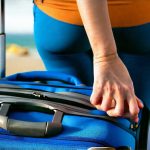Traveling is often touted as broadening the mind and creating lasting memories – and it absolutely can be! However, beneath the surface of exotic destinations and exciting adventures lies a common struggle: flow disruption. This isn’t about lost luggage or flight delays (though those certainly contribute!). It’s about the subtle but significant impact travel has on our routines, habits, and overall sense of equilibrium. When we return home, re-establishing that feeling of grounded productivity and wellbeing can feel surprisingly difficult. The initial excitement fades, replaced by a lingering disorientation as daily life feels…off.
This disruption isn’t inevitable. With conscious effort and proactive strategies, we can minimize the jarring transition back to our everyday lives and seamlessly integrate travel experiences into our ongoing routines. It’s about acknowledging that change – even enjoyable change – necessitates adaptation, both before, during, and after a trip. This article will explore actionable steps you can take to avoid post-travel flow disruption, helping you land gracefully and reclaim your rhythm without the frustrating readjustment period.
Preemptive Strategies: Setting Yourself Up for Success
The key to minimizing post-travel disruption isn’t just about what you do when you return; it’s about preparation that begins before you even pack your bags. Many people focus solely on preparing for the travel itself, overlooking the equally important task of preparing for the re-entry. This involves thoughtful planning around work commitments, household tasks, and personal routines. The more you can proactively address potential disruptions, the smoother your transition will be. Consider a phased return to normalcy, which is similar in concept to how you might approach mental resets after interruptions.
Consider a phased return to normalcy. Instead of immediately diving back into a fully loaded schedule upon arrival, build in buffer days. These “landing days” allow for rest, unpacking, and gradual re-engagement with responsibilities. Communicate this intention to colleagues and family members beforehand to manage expectations and avoid overwhelming yourself. A simple email stating “I’ll be prioritizing settling back in on [date] and [date], so response times may be slightly slower” can make a significant difference.
Furthermore, think about tasks you can complete before leaving. This might involve pre-paying bills, arranging for pet or plant care, forwarding mail, or even doing a deep clean of your home to return to a welcoming environment. These small acts reduce the mental load upon your return and free up valuable time and energy for re-establishing routines. Don’t underestimate the power of leaving things in good order – it’s an investment in your post-travel wellbeing.
Reclaiming Your Routine: The First 24-72 Hours
The first few days after returning home are critical. This is when the initial fatigue and disorientation are most pronounced, and establishing a sense of control is paramount. Resist the urge to immediately tackle everything at once. Instead, prioritize self-care and gradual re-integration. Focus on the fundamentals – sleep, hydration, and nourishment. Travel often disrupts these basic needs, so restoring them should be your first priority.
Avoid scheduling important meetings or making significant decisions during this period. Your cognitive function may still be impaired by jet lag or simply the mental exhaustion of travel. This isn’t laziness; it’s strategic self-management. Allow yourself to fully rest and recover before attempting complex tasks. A gentle walk, a relaxing bath, or spending time with loved ones can all contribute to this process.
Re-establish key routines as quickly as possible. This could involve your morning coffee ritual, exercise schedule, or evening wind-down routine. These familiar activities provide a sense of stability and normalcy, helping you regain control over your day. Even small actions like making your bed or preparing a healthy meal can have a surprisingly positive impact on your overall wellbeing.
Resetting Your Sleep Schedule
Jet lag is perhaps the most common culprit behind post-travel flow disruption. It’s not just about feeling tired; it’s about disrupting your body’s natural circadian rhythm, which affects everything from mood and energy levels to cognitive function. Here are some strategies for mitigating its effects:
- Gradual Adjustment: Begin adjusting your sleep schedule before your trip, if possible. If traveling east, slowly go to bed earlier each night leading up to departure. For westward travel, do the opposite.
- Light Exposure: Utilize light exposure strategically. Upon arrival, seek out sunlight during the day to help reset your body clock. Avoid excessive screen time in the evening, as blue light can interfere with sleep.
- Melatonin (with caution): Some people find melatonin supplements helpful for adjusting their sleep schedule. However, always consult a healthcare professional before taking any supplements.
Prioritizing sleep is essential, and understanding how to manage disruptions to your natural rhythm can be greatly enhanced by exploring techniques related to preparing for better flow sleep.
Re-Engaging With Work & Responsibilities
Returning to work after travel often feels overwhelming, especially if you’ve been away for an extended period. The inbox is overflowing, projects have progressed without your input, and colleagues are busy with their own tasks. Avoid the temptation to try and catch up on everything at once. Instead, prioritize tasks based on urgency and importance. Focus on the most critical items first and delegate or postpone less important ones.
Schedule dedicated time for catching up on emails and reviewing project updates. This prevents you from getting lost in a sea of information. Communicate proactively with colleagues to understand what has happened while you were away and to clarify expectations. A key element here is building confidence, which can be supported through restoring confidence after a flare.
Prioritizing Mental Wellbeing & Integration
Travel is often about disconnecting from the everyday grind, but it’s also about enriching our lives with new experiences. Don’t let those experiences fade upon your return. Take time to reflect on your trip – journal about your favorite moments, share photos with friends and family, or simply savor the memories.
- Intentional Reflection: Dedicate a small amount of time each day to recall positive travel experiences. This helps integrate them into your overall sense of wellbeing.
- Creative Expression: Use your travels as inspiration for creative pursuits – writing, painting, photography, or any other activity that allows you to express yourself.
- Mindful Re-Entry: Be kind to yourself during the transition period. Recognize that it’s normal to feel a bit disoriented and allow yourself time to readjust. Remember that travel isn’t just about the destination; it’s about how we integrate those experiences into our lives. Considering balancing energy and stillness can be very helpful during this re-integration process.
For some, the act of returning to routine may involve addressing underlying anxieties, which could benefit from exploring techniques for reducing flow anxiety.
Ultimately, a mindful and proactive approach is key to minimizing post-travel disruption and maximizing the benefits of your adventures. This may also involve recognizing that mental resets are crucial for maintaining wellbeing.





















